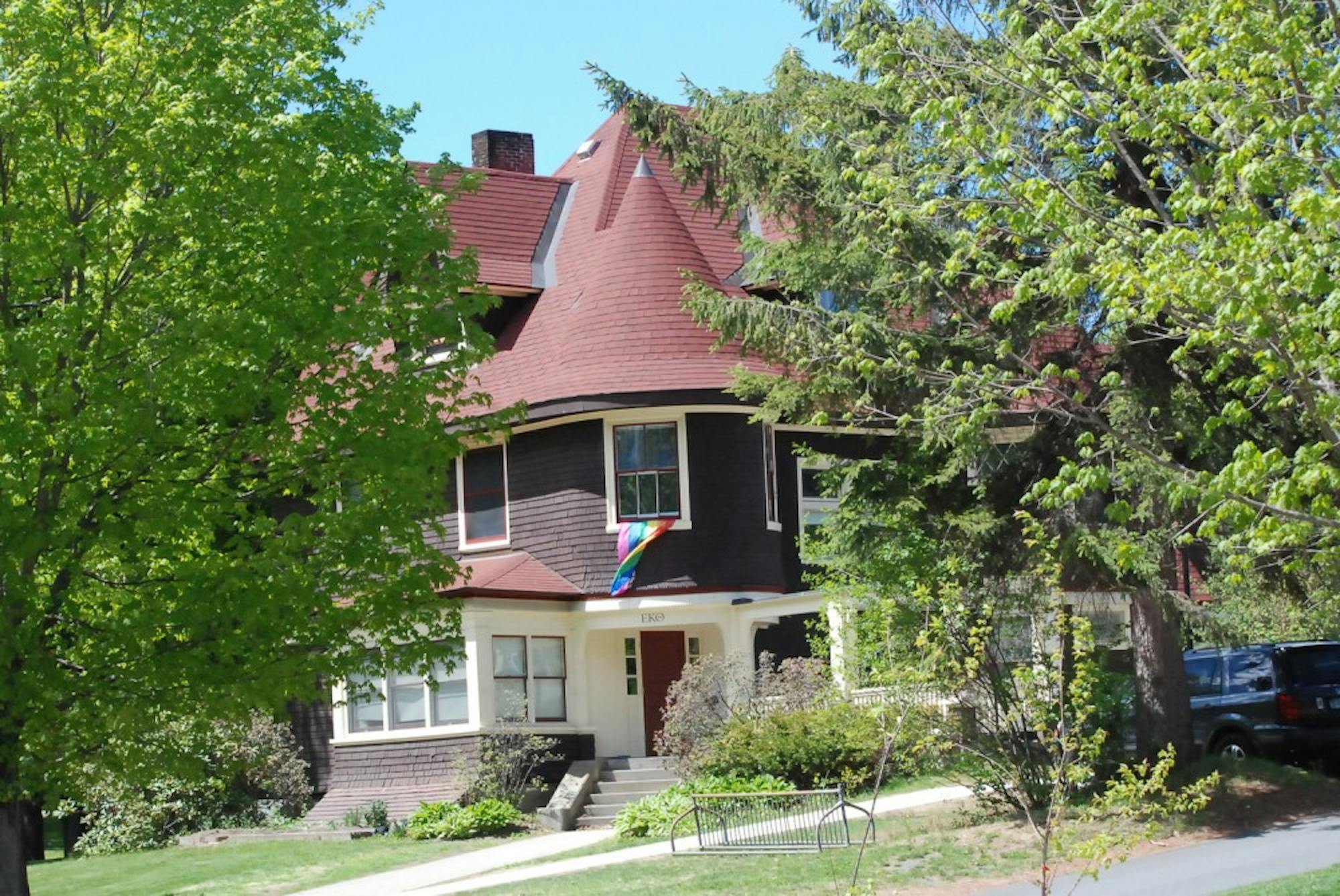On April 10, the gender-inclusive Greek organization Epsilon Kappa Theta left the Inter-Sorority Council after members reported feeling “uncomfortable” being aligned with “gender-segregated spaces,” according to EKT president Greyson Xiao ’25.
Though the house began accepting people of marginalized genders — or everyone except for cisgender men — “over the years,” EKT remained part of the ISC. The organization officially decided to leave the Council in a supermajority vote last term, according to Xiao.
“Within the house, it’s been a long time coming,” Xiao said. “Some of the trans members in the house, in particular, had been feeling a little uncomfortable with our positionality. … Around recruitment season, conversations were re-brought up, and a lot of people recognized that [membership in the ISC] was invalidating for a lot of members.”
The group will either join the Gender-Inclusive Greek Council — which currently includes the Alpha Theta gender-inclusive Greek House, as well as two coed fraternities, Phi Tau and The Tabard — or a forthcoming “multicultural council,” which will include Muslim fraternity Alpha Lambda Mu and sorority Sigma Lambda Gamma, Xiao said.
Under rules from Dartmouth’s Greek Leadership Council, EKT will have to return to the ISC if it does not join another council by next winter, according to Xiao.
“I am supportive of students and offer advice and counsel when asked, but students lead the decision making on adding members to the council,” Greek Life director Josh Gamse wrote in an email statement to The Dartmouth. “Epsilon Kappa Theta is a member organization under the Greek Life Council and they will petition for membership in the Gender-Inclusive Greek Council at the end of 24S term.
Xiao attributed the decision to the legacy of alumni, who worked to make EKT inclusive.
“As a house, EKT has always been a space that has tried to challenge tradition,” Xiao said. “It’s a part of our ethos. I appreciate the path that [alumni] have laid out to us and the values that they instilled in us to be able to make this decision now.”
The house’s move away from the ISC is “a recognition of the need for inclusivity,” according to The Tabard president Rosario Rosales ’25.
“The fact that we’re starting to have an increase in these spaces is really important,” Rosales said. “Students now have an option … to see which of these spaces they want to join and be embraced in.”
Xiao said prioritizing gender-segregated affinity spaces risks marginalized “communities becoming siloed.”
“In constructing gender-segregated spaces, it’s sort of assuming that because you are all women or all men, you are somehow supposed to share this universal experience … which is a fallacy,” Xiao said.
Although the organization will remain a Greek space recognized by the College if it joins a new council, EKT members also have concerns about the Greek system at large, Xiao said.
“Everyone at EKT shares this consensus that we have some sort of personal and moral opposition to how exclusive and how rigid and structured Greek life is,” Xiao said.
Correction Appended (April 24, 8:56 p.m.): A previous version of this article included a quote that incorrectly stated that EKT has been a space for primarily marginalized identities on campus since its founding. The quote has been removed for accuracy.




